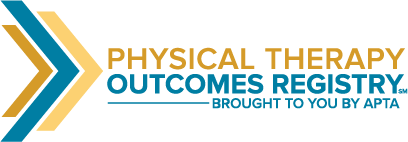
The transition to value-based care requires accountability for patient outcomes, evaluating the effectiveness of interventions, and making technical and organizational changes — all within an evolving and sometimes complicated payment system. The ability to demonstrate and quantify the value of physical therapist interventions is powerful leverage, when it comes to fair payment for physical therapist services currently covered under insurance plans, as well as for some services not covered, such as prevention. Data analytics tools — and particularly clinical data registries — can help providers meet these challenges in their own clinics and position the profession for success within the health care ecosystem.
In APTA’s strategic plans for 2013 and 2014 one of the highest objectives was the development of the Physical Therapy Outcomes Registry (Registry).
Upon the launch of the registry in 2017, APTA President Sharon L. Dunn, said, “The Physical Therapy Outcomes Registry will provide data from the profession, for the profession, in a way that’s unrivaled in our more than 100-year history. The Registry will be a powerful tool in our efforts to transform our patients’ health and quality of life. We believe the Registry will help us elevate the care we provide our patients, better demonstrate our value, and define our future, both as individual physical therapists and as a profession.” Within three months of its launch, the Centers for Medicare and Medicaid Services approved the Registry to collect and report quality measure data under the Merit-based Incentive Payment System.
The Registry is a user-friendly system to collect uniform data on patient and client outcomes. That data will help guide best practices, help providers meet regulatory reporting demands, generate benchmarking reports, help shape policy, contribute to emerging payment models, and demonstrate the value of physical therapist services to payers and fellow providers. The overall impact of the Registry will be to demonstrate the value of physical therapist practice and the ways it can transform society.